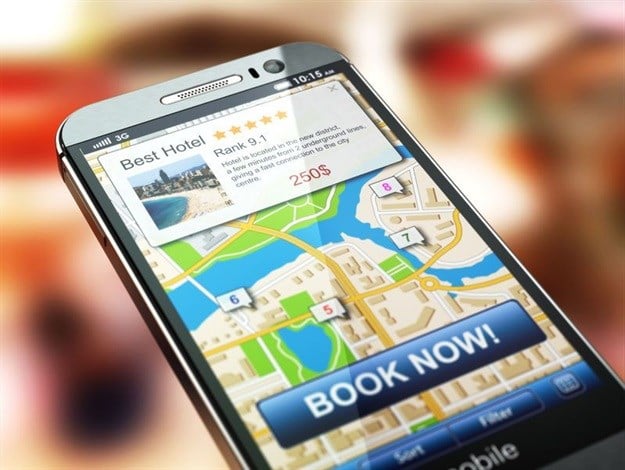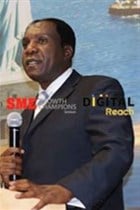Let's face it. Traditional marketing methods are increasingly becoming obsolete at the speed of the internet revolution. On the other hand, smart technologies are creating immense opportunities that hotel brands can leverage for more cost-efficient guest acquisition.
With their revenues being pinched by high operating costs, hoteliers have only one option to increase profits and this is through savvy marketing that taps into in-market guest data. The role of the latter in guest acquisition campaigns cannot be over emphasised as it enables hoteliers to be relevant and timely in their prospecting. Keeping the guest in mind is critical across all points on the sales cycle. After all, the goal of marketing is not to acquire devices, necessarily, but to acquire and retain real people.
Typically, the best way to target prospective guests is meeting them in the four critical moments which Google calls micro-moments. These are the times when a user swipes out his smartphone to search for valuable information in their why, where, how and what moments of enquiry.
Answering these questions is the fastest way to getting the coveted booking.
The modern path to a hotel booking is broken into four moments: when guests are dreaming of a vacation or simply looking for travel Inspiration; travel planning; when they make a booking and finally; and how the hotel experience is delivered on their smart devices.
Each moment is very unique and allows hoteliers to engage with their potential guests in a way that quickly converts them into bookers. Like any other vertical these days, customers are in control of the purchase process and seek value first before they make a decision.
So how can hoteliers market in these four micro-moments?
1. Dreaming/inspiration stage
In this stage, travelers are just looking for ideas on possible destinations. In their quest, they visit between 10-23 websites. Search engines are their starting point. According to a 2017 travel study by Fuel, over 80% of travel searches start on search engines. This means that SEO, search engine optimisation, is a must-have tactic that will allow a hotel’s information to be found online.
Content marketing feeds into the process by providing strategic answers to search queries. Winning content is the one that showcases a hotel’s local attractions as well as its proximity to other places of interest like restaurants and cinemas.
What makes this information important is that it influences destination choice rather than a hotel brand. A person chooses a specific location then later on decides where he will sleep.
The best medium for to engage with the prospective guests is visual content. According to research, we process images 60,000 times faster than text. The old adage still applies, a picture says a thousand words and now there is a claim that a minute of video says 1.8 million words.
The ability to deliver a brand’s message as quickly and meaningfully as possible is the difference between success and failure. Why? Smartphone usage has reduced attention spans leaving humans with attention which according to scientists is below that of goldfish. The research findings show that our attention span is now just under 12 seconds. This is the small window of opportunity that hotel brands have to deliver their core messaging.
Studies show that visual content is strong in helping brands reach their right audience in an engaging context. According to DemandGenReport.com, “visuals are faster and easier for the brain to process, and can help drive better business results and more eyeballs to your page.” A picture or video delivers emotive value that drives decision making. To win in this highly competitive space, hotel brands should resort to storytelling. They must not only show the rooms but should also tell a unique story about their property and the experience it offers. This is what sells and not some 'storyless' glossy pictures.
2. Planning
At this stage, the guest would have made up his mind on where he will go and now wants to make travel plans. This exercise and the decisions made in it are dependent on detailed information supplied via a hotel’s digital assets, be it the website or social media pages. Hoteliers should be present in these moments by providing free and exhaustive information about their destination.
The quality of information provided should enable travelers to approximate the experience they will enjoy as per their specific interests and expectations. Travel is not cheap and travelers expect value for money. It is useful for hoteliers to give their prospective guests a level of confidence about what to expect when making the booking decision.
3. Booking
This is the gold mine moment when a prospective guest is about to take the last but lucrative step. It means that a hotel would have successfully converted a looker into a booker.
However, getting a booking is not a walk in the park, as most hoteliers worldwide have found out. According to a Boxever + Skift special report, “the travel industry as a whole suffers from 81% abandoned cart rates, compared to just 68% across other online retail sectors”.
This represents lost potential revenue that could improve most hoteliers’ ADR.
Surely, hoteliers ought to do something about this worrying trend. One way of doing it is identifying a good booking engine supplier whose technology can be integrated with other sales, marketing and guest technologies. Most importantly, the engine should work properly on smartphones as most leisure and business travelers make their bookings on their mobile devices.
Guests must not find it difficult to complete the booking transaction.
4. Experiencing
The guest experiencing moment provides hoteliers with the perfect opportunity to drive guest satisfaction through the roof, that is, if there is a well-thought strategy in place.
Advancement in digital technologies, especially the Internet of Things (IoT), has allowed savvy hoteliers to share practical and relevant information with each guest in a unique way.
Hoteliers should always bear in mind that a guest who is wowed by a great hotel experience shares it with his peers on social networks and the proceed to enter positive reviews on sites like TripAdvisor. This is not a small thing. 84% of social media users agree their friends’ and family’s vacations inspire them and reviews have a 95% influence on bookings.
It is quite clear that hoteliers have to implement an exact tactical execution plan if they are to connect with prospective guests in each micro-moment. This leads to better message delivery that is relevant to the prospective guests’ psychology and informational needs. Doing this improves a hotel’s revenue.

































